Six personal finance pros on what it takes to become a ‘money expert’
By: Lisa Coxon and Zandile Chiwanza on July 16, 2020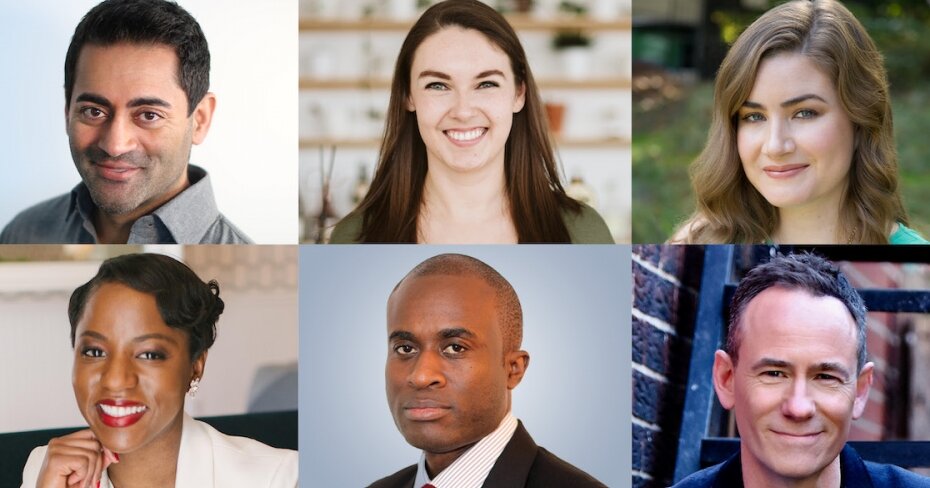
We see them on the news. We hear them on the radio and on podcasts. We read their words online. They’re called upon to answer tough questions, make tricky predictions, and, most importantly, to empower us to take charge of our money.
They’re personal finance experts. And for many, they’re our go-to sources when it comes to knowing what to do with our money.
But how exactly does one become a "financial expert"? The path to this designation is significantly different for everyone. Some go the way of obtaining professional accreditations and formal education, while others read and write about their own financial journeys until — voila! — one day they emerge as bonafide experts, and find themselves called upon by the media for their knowledge and insight.
We wanted to find out what it really takes to become a money expert. So, we spoke to six personal finance pundits from across North America about how they earned their money expert badges. While each has a very different story, they all have one thing in common: they don’t really consider themselves experts. They’re simply doing their best with the knowledge they have, but they know there's always more to learn.
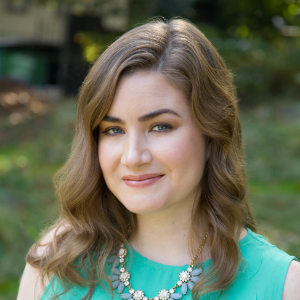
Erin Lowry
Founder, Broke Millennial
When Erin Lowry launched Broke Millennial in January 2013, she’d never read a personal finance blog before. She also had no idea that what started as a “passion project” would one day pay her bills.
Growing up, Lowry says her parents spoke openly about money, so she assumed everybody else's did, too. It was only after a conversation with a friend struggling to make ends meet and pursue her dreams of becoming an actress in New York City that Lowry realized this wasn’t the case. "That was this lightbulb moment for me to start asking people in my life what they think and know about money," says Lowry. "No one wanted to talk and that's when I thought, well maybe I’ll just write about it.”
In the beginning she simply wanted to create a space where people could read about money and she could build a portfolio with samples of her writing, having studied journalism and theatre in college. In less than a year, however, she started to get some media attention. Reporters started calling on her to speak for all millennials who felt broke and needed practical advice on how to handle their money.
That’s still the case today, but as Lowry evolves, so does her brand. Apart from being a go-to expert and speaker, Lowry hosts a weekly Q&A on Instagram called “Ask Me Anything,” and she’s currently editing her third book. What really lights her up right now is money communication. And if it were up to Lowry, she’d be referred to as a “money translator.”
“Once you get the basics together, you're going to start engaging in these potentially very tough but very important money conversations in your life, like asking your parents if they’re ready to retire, asking your romantic partner to sign a prenup before you get married, telling your friend you can’t afford to go on that trip,” she explains. “Very few people talk about how to do that part well.”
Advice for aspiring money experts: “Personal finance should be something that you’re actually interested in. Sometimes I see people coming into the space who are trying to look at it as a get-rich-quick scheme. You're going to burn out so fast if that's the strategy because it's a lot of work, time, and free labour. Part of the reason I can emotionally and mentally sustain doing all of this is because I really find it interesting.”

Desirae Odjick
Founder, Half Banked
Desirae Odjick has been earning an income for her financial know-how since she was in high school — but not in the way you might think. Her mother, who raised her as a single parent, used to give Odjick $20 for every personal finance book she’d finish reading.
“She said ‘Listen, I’m maybe not the expert on this but I understand that money is the key to living the life that you want to live,’” recalls Odjick, who came to that same realization herself when she started her blog, Half Banked, in 2015.
“I sat down one day, looked at my next five years and went ‘Oh... everything is going to cost money.’ I wanted to buy a house. I wanted to get a dog. I wanted to save for retirement. I wanted to get married. All of these things cost a lot of money and I don't actually have that money, so I should figure out how I’m going to get it.”
Odjick started writing about her experience trying to save half of her income each month (hence the name Half Banked). “The blogs I was reading were very male, very white, or very focused on extreme frugality,” she says. “I thought if I have these savings goals, then maybe extreme frugality is the way. But it really didn’t work for me long-term.”
What started as a sort of diary quickly morphed into something bigger. About a year in, she was approached by Wealthsimple — and in 2018, Tangerine — for partnerships. This delighted her because these were products she’d been using before she started blogging. Still, her imposter syndrome was real. “Who am I to talk about money?” she remembers thinking. “I’m just a marketer in Ottawa who’s interested in this.”
Despite the blog’s success, she’s not sure she’d brand herself a money expert. “The more you learn, the more you see how much there is to learn,” she says. “Money is so broad and complex, but I’m just happy to have contributed to the conversation.”
Advice for aspiring money experts: “Nothing will make you improve or focus your thinking more than writing something you know someone else is going to read. Even if it’s three people. Put your words down, either on paper, on a screen, or in a slide deck you intend to present. Share what you know and be clear about how much you know.”
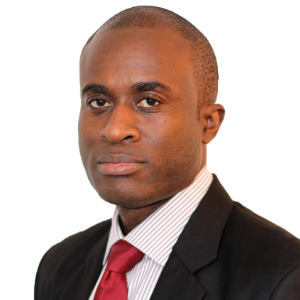
Enoch Omololu
Founder, Savvy New Canadians
When Enoch Omololu finished his master’s in finance and investment management from the University of Aberdeen Business School in Scotland, he was looking forward to working in the investment industry. “That was my grand plan back then,” he says.
But when Omololu arrived in Winnipeg at the end of 2011, at 29 years old, he quickly realized that the opportunities in investment banking were very limited, and that he’d need more experience if he was going to get even an entry-level position. So, he continued practising as a veterinarian (a degree he earned in Nigeria) and in 2016, began writing about his experience trying to navigate personal finance in a new country.
“When I started the blog, my plans were very modest,” he says. “Really, the intention was to document my understanding of Canadian personal finance. I’d been in Canada for almost four years and I had no idea what a TFSA or an RRSP was.”
Omololu started Savvy New Canadians as a “journal” for him and his friends. But about a year after the blog’s debut, his traffic began to soar and the questions he received were no longer just coming from new Canadians — they were coming from all Canadians.
Fast forward four years and Omololu says it feels good to know that if he wanted to, he could earn a living just from his blog. Not only does Omololu have that master’s degree; he’s also taken the Canadian Securities Course. That doesn’t make the media recognition — from publications like the Toronto Star, the Financial Post, and the Winnipeg Free Press — feel any more mundane, though.
“Sometimes even now I feel like an imposter,” says Omololu. “Like I’m going to fall back to reality.”
Advice for aspiring money experts: “Try to get some level, if possible, of formal education. People may not take you seriously if you haven’t actually taken some exams, even if you have all of the experience. It could be going back to school, it could be online courses, just something to boost your confidence.”
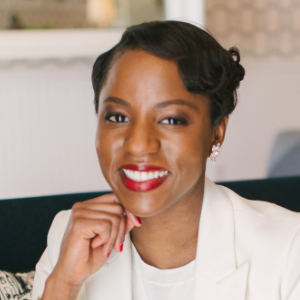
Bola Sokunbi
Founder, Clever Girl Finance
“Hey Bola, I'm trying to save money. Can you give me some tips?"
“Hey Bola, what’s a 401k?”
These are questions that Bola Sokunbi, the founder of personal finance platform Clever Girl Finance was so used to hearing from her girlfriends that she felt inspired to start a blog that would help other women manage their money. “Because I talked about money all the time,” she says, “I became somewhat of a reference point to my friends.”
Sokunbi’s interest in personal finance was sparked by her mother’s major sacrifice — paying for her to attend college abroad — but it would be graduating and getting her first job that would drive her to learn more about the topic.
Immigrating to the United States from Austria in 2001, Sokunbi had to start from scratch, teaching herself how to invest, save, and budget. In 2016, she decided to become a certified financial education instructor because she felt she needed to understand how to teach personal finance effectively and have the qualifications to back it up.
“A lot of people have opinions about everything,” she says. “There's a trust factor if you can say ‘I’m actually trained and qualified to talk about this.’”
But Sokunbi doesn't necessarily love the term “expert” because it almost sounds like you know it all and there's nothing else you can learn. “When you stop learning you stop growing,” she says. “I'm always learning.”
Above all, representation matters most to Sokunbi. So if it was up to her she’d go by “Black female finance expert.”
“When you look at the big landscape of personal finance, it doesn't matter where you are, there's not many people of colour in the space,” she says. “I think it's important to recognize that there are people like me in this space, but we also need more.”
Advice for aspiring money experts: “Content is key. And not just the free content on social media, because you don’t actually own that content. I’m talking about books, courses, and building a personal website so that you can amplify your voice and showcase yourself as an expert.”
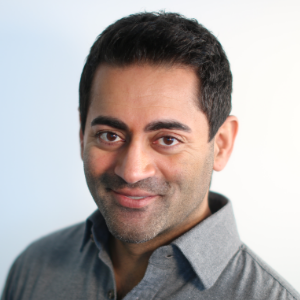
Preet Banerjee
Did you know that one of Canada’s top personal finance personalities once pursued a career in race car driving?
“I was too old, didn't have enough talent or money so I never made it,” says Banerjee. But he ended up working at a racing school just outside of Toronto for a few years, where he met a lot of Bay Street associates, one of whom eventually hired him to analyze stocks in the biotech industry because of his background in neuroscience.
Banerjee’s money management journey, however, started as a teenager when he received his first paycheck from McDonald’s. “My dad marched me to the bank and said you're going to set up an automatic savings plan, you’re going to purchase a mutual fund every paycheque, and he gave me a few books to read on investing,” says Banerjee. “He had planned my retirement when I was 15 years old.”
Years later, while working as a mutual fund sales representative for one of the big banks, Banerjee realized his love for personal finance and started a blog. “At the time, the industry didn't really know what to do with blogs,” he says. “They didn't even know what they were worth. They just knew they didn't like it.”
Then came the big call from CBC’s The National with Peter Mansbridge for Banerjee to be a panellist. “That was insane exposure,” he says. “The biggest break I've had by far."
When he’s not making regular media appearances, Banerjee works as a consultant and speaker. He’s currently finishing his doctorate, which looks at quantifying the value of financial advice. With many years of experience in a wide range of roles in the financial services industry and several certifications and designations, Banerjee was happy to be dubbed a “finance expert” for a long time. But now he prefers “commentator” because it’s more relatable.
"’Expert’ kind of sets this hierarchy that you're talking down to people, which I don't really like," he says. Instead, Banerjee considers himself a lifelong learner.
“Personal finance is so broad that if you're going to call yourself an expert you need to know a lot about a lot of different things,” he says. “I don't think I'll ever stop learning.”
Advice for aspiring money experts: “Be open to feedback. We don't want know-it-alls, we want learn-it-alls. What is there to learn? What is there to explore?
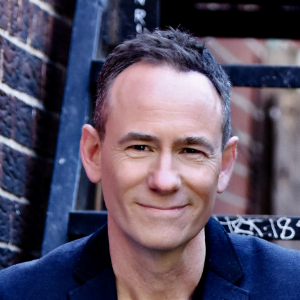
Bruce Sellery
Radio and television host, Author, Speaker
When Bruce Sellery was growing up in London, Ont., receiving an allowance was no small event. If Sellery wanted to withdraw money from his allowance, he’d have to ask his father, tell him what the money was for, and then his father would record it in a ledger.
“He wanted to be clear,” says Sellery, “that you knew that you were spending with intention.”
That would go on to become Sellery’s guiding philosophy as he entered the world of personal finance, a journey that began in the ’90s when Sellery landed a job as a business journalist at BNN Bloomberg (then known as RoBTV). “It was an incredibly exciting time because there had never been a business network in Canada,” he says. But he soon realized that most of what he was reporting on “makes no difference to regular people.” After nine years, Sellery left BNN and moved to Calgary with his husband, and started trying to figure out what would.
He began hosting small personal finance workshops centered around getting people comfortable with articulating what their money is for. For the life of him, he couldn’t get a word out of his head. That word was “moolala.” It would go on to become the name of Sellery’s first published book, and of the personal finance podcast he hosts today on SiriusXM radio. He’s also hosted Million Dollar Neighbourhood on the Oprah Winfrey Network, been a columnist for MoneySense, and today holds down a gig on CBC Radio that’s syndicated across 19 markets, and routinely gets tapped for a slew of speaking opportunities. “I have stitched together this kind of weird hybrid of media and speaking and financial literacy consulting,” he says.
“If you look at the other experts out there, there are many more who are way smarter than I am and way more attuned with what’s happening in the markets,” he says. “That’s not my superpower. My superpower, I hope, is to try and get people to think differently. And that’s not a credentialed thing.”
Advice for aspiring money experts: “Learn the rules and then break them. Where the new voices are going to come from are not the established dominant voices. We don’t need more of same. We need more of different.”


